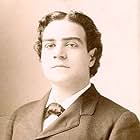The ducal estate has rich land, but there's been no investment in machinery, or move to drain the marshes. The head farmer, Vasco Creti, is getting old for the job. Yet there is rejoicing, for Duke Sandro Salvini is returning after many years in the city. All the people celebrate, but then the word goes out: he is selling the land to Carlo Ninchi.
At first I thought that Alessandro Blasetti's film was ancestral to the country-set neo-realistic films after the war, with its talk of hard times and gently moving shots of the peasants en masse. It soon became clear it was a romantic comedy, for Salvini returns with a bunch of friends who fox-trot to country tunes, and lover Isa Pola, who really wants him to sell, and that his inevitable fate is Leda Gloria, Creti's daughter, who meets Salvini without knowing who he is and tells him that the Duke is doing it all wrong. He should return to the estate and take care of it and the people, who have been there for a thousand years.
Beautiful camerawork by Giulio De Luca and Carlo Montuori make this watchable, and a handsome sense of humor is present, at least until Ninchi has his lackey burn the peasants out.
Blasetti directed his first movie in 1917, then went back to film criticism. He returned to producing, co-writing, and directing in the late 1920s, and continued to work until 1981, with a lot of historical epics in his filmography. He died in 1987 at the age of 86.




